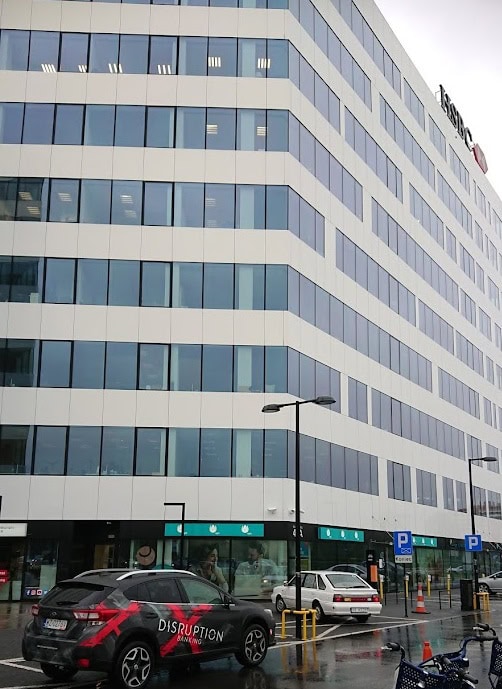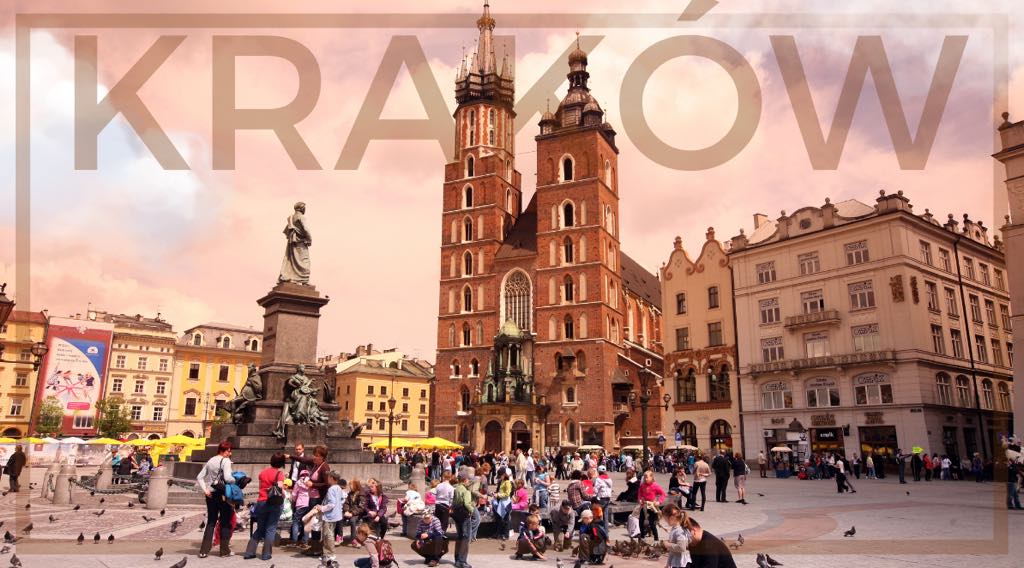Krakow may not be able to compete on the global stage with cities like Dubai or Singapore, but it has still managed to put itself on the map as a destination for banks and financial institutions. Today there is one bank that can draw its heritage to Krakow more than any other bank in Poland. That bank is BNP Paribas. It’s financial institutions like BNP Paribas and others that have helped Krakow achieve the reputation of a financial hub today. We look at which financial institutions have helped create this reputation over the years, and how.
In 1990 a community bank was established in Krakow, a year later the Polish-American Entrepreneurial Fund became a strategic partner to the bank which changed its name to First Polish American Bank in Krakow. This bank was later sold to Fortis Bank, which was eventually bought by BNP Paribas.
How Krakow Became a Hub for Nearshoring and Outsourcing
In Poland some banks like ING Bank Slaski represented regional banking players from the past. In the case of ING a local Slaski (or Silesian) bank was incorporated in 1988. This same bank was later acquired by ING in 1994 and formally renamed ING Bank Slaski in 2001. Other banks like Citi Handlowy or Santander have a similar history related to Warsaw and Wroclaw respectively.
In Poland it’s Poznan, though, that has had the most exposure to banking and capital markets outside of Warsaw. In the early 2000s BZWBK’s Arka Fund was giving some of the best returns in the market. The team behind this fund were based out of Poznan. It didn’t take long for Franklin Templeton to work out that Poznan could be a hotbed of talent. The U.S. asset manager opened a centre of excellence in Poznan in 2007 and has been growing in strength ever since.
Krakow is different. Initially it was companies like IBM, Shell, and Capgemini that put Krakow onto the radar of international financial institutions. IBM opened its office in Krakow in 1996 and started to engage local accounting and finance talent from the market. This trend of nearshoring and outsourcing has continued to grow in popularity. Poland’s accession to the EU in 2004 made this trend even more attractive to global businesses.
This initial interest in Krakow can in part be explained by the large number of students who call the city home. The city is home to Poland’s oldest university, the Jagiellonian University which has over 30,000 students attending at any one time. But there are several other universities too. The Krakow School of Economics (UEK) and the AGH University of Science and Technology.
International Banks Open Nearshoring Hubs in Krakow
It wasn’t long before the wider market took notice of what was happening in Krakow. Not only does the city produce a comparable number of students to Warsaw each year, but it is also an attractive destination for tourists too.
Situated by the river Vistula and with a prestigious castle and quaint old market square, Krakow isn’t just a hub for business. Leaders at banks like UBS started to explore what the city has to offer in the early 2000s. Soon after State Street, one of the largest asset managers in the world, also looked at Krakow as a hub for fund accounting.
When UBS and State Street first started to recruit in Krakow, they looked for KYC specialists, customer service agents with languages, fund administrators, and other less challenging roles. By 2008 approximately 12,000 people were engaged to work for the nearshoring sector. HSBC joined the Krakow ecosystem in 2007.
To support this newly growing sector ASPIRE came about. ASPIRE is the Association of IT and Business Process Services located in Krakow. It was founded in 2008.
How Krakow Became a Tech Hub
Two of the biggest contributors to Krakow’s tech scene are Comarch (a leading Polish software company) and Sabre (a software and tech company for the travel industry). Numerous engineers and developers from Krakow started their careers at one of these two firms. It wasn’t long before the financial institutions took note of this as well.
By 2011 HSBC started to engage tech talent in Krakow. It was a big turning point for the Krakow market. Initially, banks like HSBC had little experience in hiring large teams of engineers. To help to engage higher numbers of talented engineers, HSBC’s Head – Innovation & Strategic Investments, Barry Childe, gave a talk at the ASPIRE annual conference in Krakow in 2017 about blockchain.
In 2018 a U.S. startup called Qualtrics was looking at Krakow too. The CTO of Qualtrics at the time was John Thimsen, who is also known for working on Amazon’s Alexa team. He gave a talk in Krakow where he unveiled Qualtrics new head of engineering in Krakow, Piotr Uryga, who joined from Sabre.
@Qualtrics : Another success story comes to Krakow
— #DisruptionBanking (@DisruptionBank) November 15, 2018
The fame of Krakow increaseshttps://t.co/9nog4Tr6JB
Not to be outdone, a few months later Andy Maguire, Group COO of HSBC, held a similar talk in Krakow, this time in collaboration with DisruptionBanking. Both events were packed and over-subscribed as tech talents took note. Something special was happening.
Krakow’s Rise as a Financial Hub
With financial institutions like HSBC and UBS engaging with tech talent in Poland, it was high time for more change. It hadn’t gone unnoticed by the banks that a company called Chatham Financial had a presence in Krakow already. The firm is the largest independent financial risk management advisory and technology firm in the world. In Krakow the firm employed several quantitative analysts or quants. Known as the hidden superstars of finance, quants normally work in capital cities where they are drawn to local stock exchanges and the wider capital markets.

Could Krakow become a destination for these financial superstars? HSBC thought so. Today HSBC operates a large independent model review team in Krakow, many of the team are seasoned quants. They work on global markets, not just on local Polish markets.
Then, to highlight further the banks’ ambitions, in the summer of 2024 HSBC posted its first job advert in Poland for a blockchain developer:
It’s not just HSBC making waves in Krakow today. In 2018 HedgeServ, a leading global fund administrator with more than $500 billion of assets under administration, also opened an office in Poland’s second city.
Led by the charismatic Eoghan O’Dwyer, HedgeServ is also strengthening its team in Poland. The firm currently has over 500 employees in Poland, but where the focus up till now has been engaging fund administrators, today things have changed. HedgeServ is on the lookout for people with private equity experience too. Lots of them.
Krakow’s Financial Ecosystem is Growing
A recent story by leading Polish newswire Bankier.pl highlighted that HSBC in Krakow has been undergoing staff reductions. The article focuses primarily on the layoffs without delving into the underlying factors. Across the global financial sector, AI and digitalization have prompted many companies to restructure their operations – Morgan Stanley, Deutsche Bank, UBS, Barclays, and Citi have all made similar moves, often involving significant workforce changes. In this context, it was perhaps only a matter of time before HSBC in Krakow aligned with industry trends. That said, the bank continues to seek talented professionals in Poland. A glance at one of Poland’s top job portals shows openings ranging from Senior Portfolio Services Manager and Senior AVP – Wholesale Credit Risk to Python Quant Developer and Kubernetes Platform Engineer. This illustrates the bank’s commitment to investing in the local talent pool, even amidst necessary structural changes.
Additionally, it’s worth noting that UBS in Krakow, Wroclaw and Warsaw was reported in February to be making layoffs of up to 1,200 people. A much higher number than the layoffs reported at HSBC.
HSBC and HedgeServ are not the only players in Krakow’s growing ecosystem. State Street, UBS, and Chatham Financial were already mentioned in today’s story, but there are others. StoneX, a leading financial services network, has a team of nearly 500 in Krakow already. IG.com, the leading online trading provider, has 650 people working in Krakow. Then there is Brown Brothers Harriman which employs 1,650 people.
Data about headcount in Krakow is thanks to Motife.
Other companies that make up Krakow’s financial ecosystem include Universal Investment, Backbase, Euroclear, OANDA, WorldRemit, Trade Ledger, Revolut, and BNP Paribas.
Today Krakow’s nearshoring and outsourcing sector employs over 120,000 people. Andrew Hallam, General Secretary of ASPIRE shared how “Krakow’s growth as a hub for outsourcing has seen consistent growth over the last decade. Over the years the city and local universities have engaged with businesses to increase both the talent, and the infrastructure needed to support a healthy ecosystem. The rising demand for finance and banking professionals shows the flexibility and dynamism of the Krakow market.”
Each year more companies are attracted to the Krakow ecosystem. How far can this burgeoning hub continue to grow? Only time will tell.
Author: Andy Samu
#Krakow #Quants #HSBC #HedgeServ #Talent #ASPIRE #FinancialHub #Nearshoring #Outsourcing
See Also:
What it means when US giants come to Krakow | Disruption Banking

















